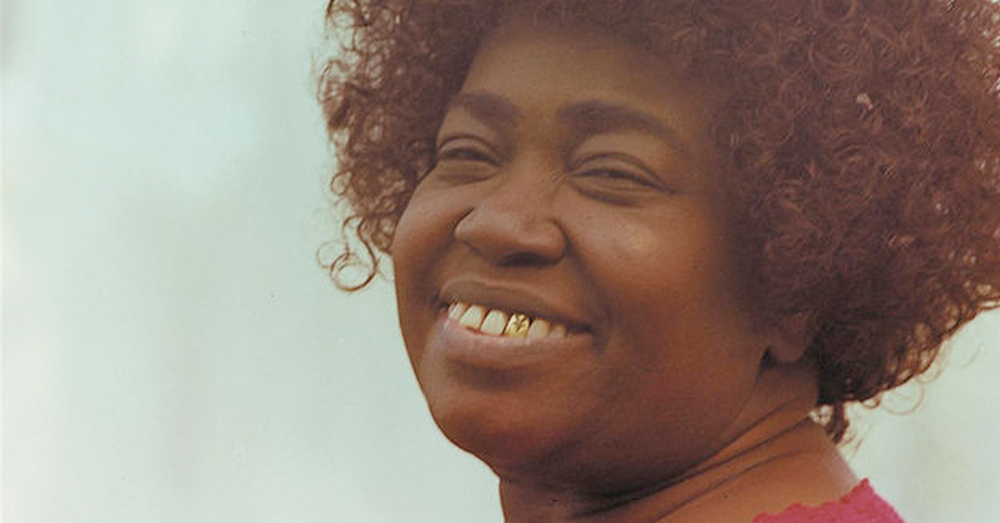Terry Gross has interviewed some of the greatest gospel and gospel influenced artists of all time. Artists like Al Green – who rarely agrees to interviews anymore – and Marion Williams, who passed away in 1994, are enshrined in the Fresh Air archives.
These two particular Fresh Air interviews with Green and Williams speak to a distinct theme in gospel that’s existed since the genre’s inception: the secular-sacred divide. It’s the “Saturday night and Sunday morning” paradigm. It’s the musician who stayed up until 3:00 AM carousing the night, and finds themself the following morning at church spreading the good word. Case in point the father of gospel music, Thomas Dorsey, played piano for blues sensation Ma Rainey. The Golden Gate Quartet performed regularly at Cafe Society, the first integrated nightclub. Sam Cooke briefly went under the pseudonym “Dale Cooke” when he first started performing secular music so as not to upset his church-going fans. The lines between secular and gospel were blurry from the start.
Crossing over into the secular didn’t come easy. Gospel musicians were quickly ostracized from their church communities. For some, the risk of religious mutiny outweighed the financial gains of appealing to a wider (whiter) audience. Marion Williams was one of these musicians. Williams spent most of her adult life in Philadelphia singing with the Ward Sisters until she broke off and started her own group, the Stars of Faith. She eventually toured with Langston Hughes’ off broadway performance, “Black Nativity.” While Williams upheld her religious convictions, she was by no means a cherubic performer. She was known for sitting on the laps of audience members and on occasion – in the throes of the spirit – would grab personal items from churchgoers.
In the 1970s while touring Europe, Williams was offered a $100,000 record deal to sing pop songs. She nearly agreed, but after a night of deliberation she couldn’t follow through. “[T]he money sound extra good,” Williams recounted on Fresh Air. “ It was hard turning it down, really. I have to be truthful about that. But I mean the Lord got to dealing with me.” Her decision almost ruined her relationship with her manager, who couldn’t understand why Williams passed on such an incredible offer. You can hear of Williams conversation about her decision below:
Williams faith overrode any monetary temptations that lay on the other side. She wasn’t alone in this. Al Green also came to the same conclusion, but in reverse order. Trained in the church, Green started his professional career as a soul musician. He recorded a string of hit singles in the early 1970s that included “Let’s Stay Together,” “I’m Still In Love with You,” and “You Ought to Be with Me.” As the titles denote, Green’s music was almost entirely about love towards a romantic partner.
After the suicide of his girlfriend, Mary Woodson White, and an injury he sustained during a performance, Green transformed his life. He dedicated his work to pastoring and singing gospel music. He chose love for God over love towards any woman. For Green, the decision was clear. “[N]o matter how beautiful, no matter how fine, no matter how gorgeous, no matter how much I love you,” Green expressed on Fresh Air, “I can’t depart from my roots, my foundation, my progenitor, my makeup, my everything, my life, my bright and morning star. My Alpha.” Al Green made the unusual choice of abandoning glamor, fame, and money, to return to his faith. You can hear from Al Green more below:
The secular and sacred divide in music is often distilled to a quiet, complicated conclusion. Like pop, gospel music is a product of the times. Often, there is no clear cut division at all between sacred and secular songs. While these conclusions are true and reflect a beautiful blending of worlds, it would be remiss to exclude Williams and Green’s stories. Their stories show the nuance between secular and sacred music. Their experiences demand asking a crucial question: how can one reconcile faith over matter? For Williams and Green, their faith could only lead them one way.
Special thanks to Fresh Air with Terry Gross, WHYY in Philadelphia and NPR.
This article is by Rachel Ishikawa for WXPN’S GOSPEL ROOTS OF ROCK AND SOUL.
GOSPEL ROOTS OF ROCK AND SOUL has been supported by The Pew Center for Arts & Heritage

